‘Belt and Road’ foreign aid training program from the Ministry of Commerce
The 2019 Breast Cancer Early Detection Training Course for Omani Primary Health Care Providers was successfully held in Tianjin
The 2019 Breast Cancer Early Detection Training Course for Omani Primary Health Care Providers was successfully held in Tianjin from 12th to 14th of August, 2019. This training course was approved by the Chinese Ministry of Commerce and organized by the Center for International Communication and Cooperation (CICC) of the National Health Commission (NHC) of the People’s Republic of China. A total of 25 Omani primary health-care providers who have been involved in the early diagnosis and treatment of breast cancer attended this training course.
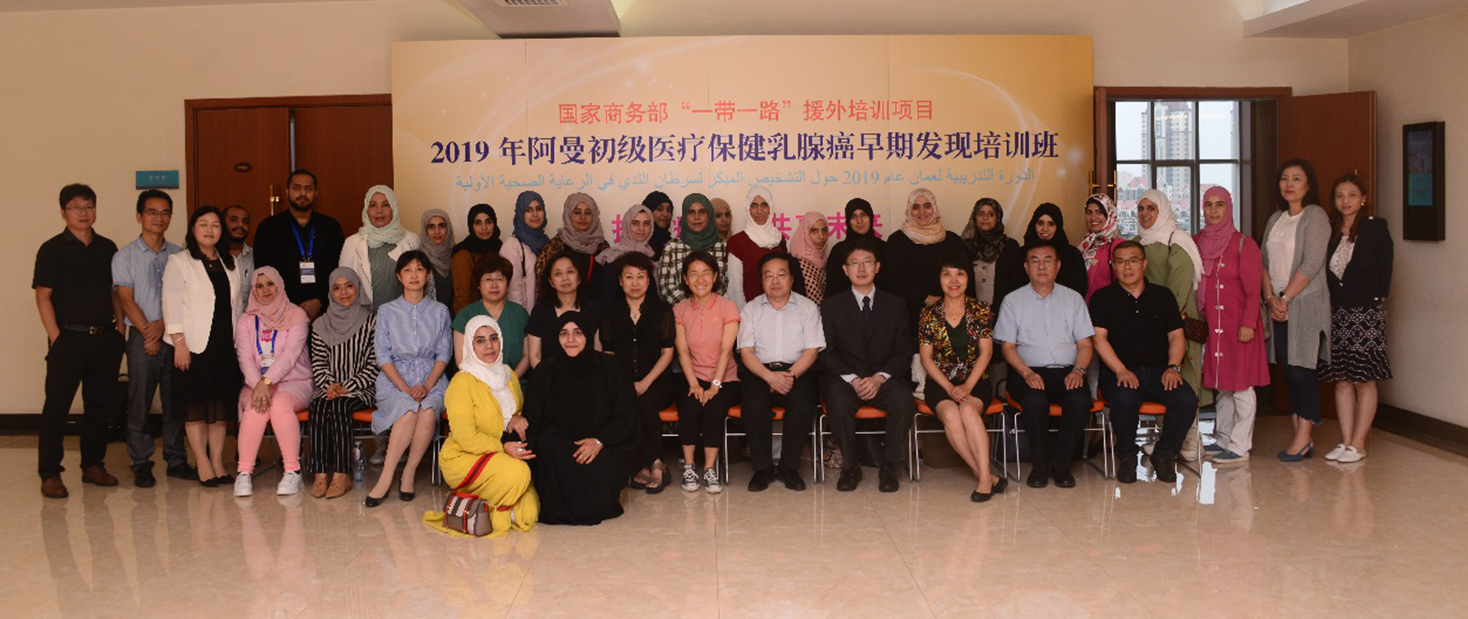
Cao Yingjie,Senior Program Manager of the CICC from NHC; Duan Ning, Deputy Director of the Foreign Affairs Office of the Tianjin Municipal People's Government; Shao Xiaojun, Director of the Department of Maternal and Child Health from Tianjin Health Commission; Xia Yingyi, Deputy Director of the Cooperation and Exchange Office of Tianjin Health Commission; Prof. Wang Ping, President of Tianjin Medical University Cancer Institute and Hospital (TMUCIH) and Prof.Chen Kexin, Vice President of TMUCIH, contributed to the training course.
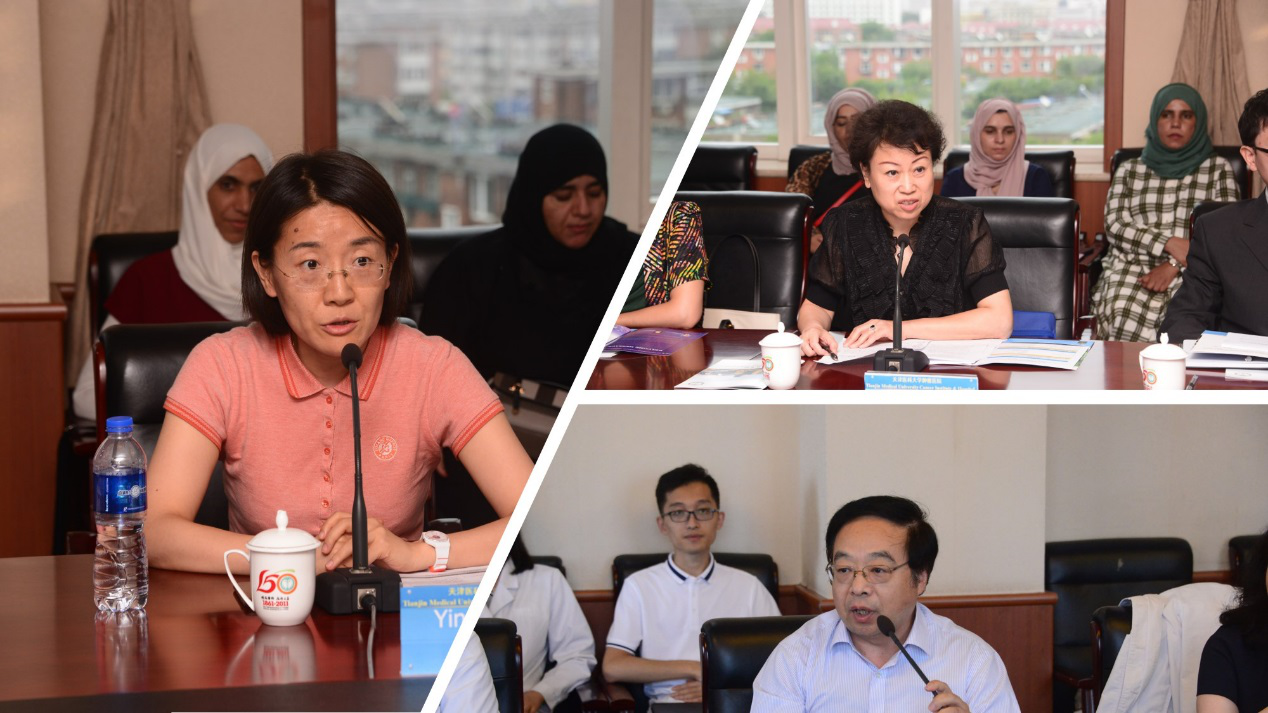
Professor Chen Kexin gave a detailed introduction to the current status of female breast cancer screening programs in China and presented the major results from these programs. Sh then outlined the Breast Cancer Screening Guidelines for Chinese women and their major screening recommendations. Associate Professor Huang Yubei gave a detailed introduction to the current joint cancer screening program focusing on lung, breast, stomach and liver cancers in Tianjin. Director Zhang Lijun gave an overview of the important progress that TMUCIH has recently achieved in science, education, and research.
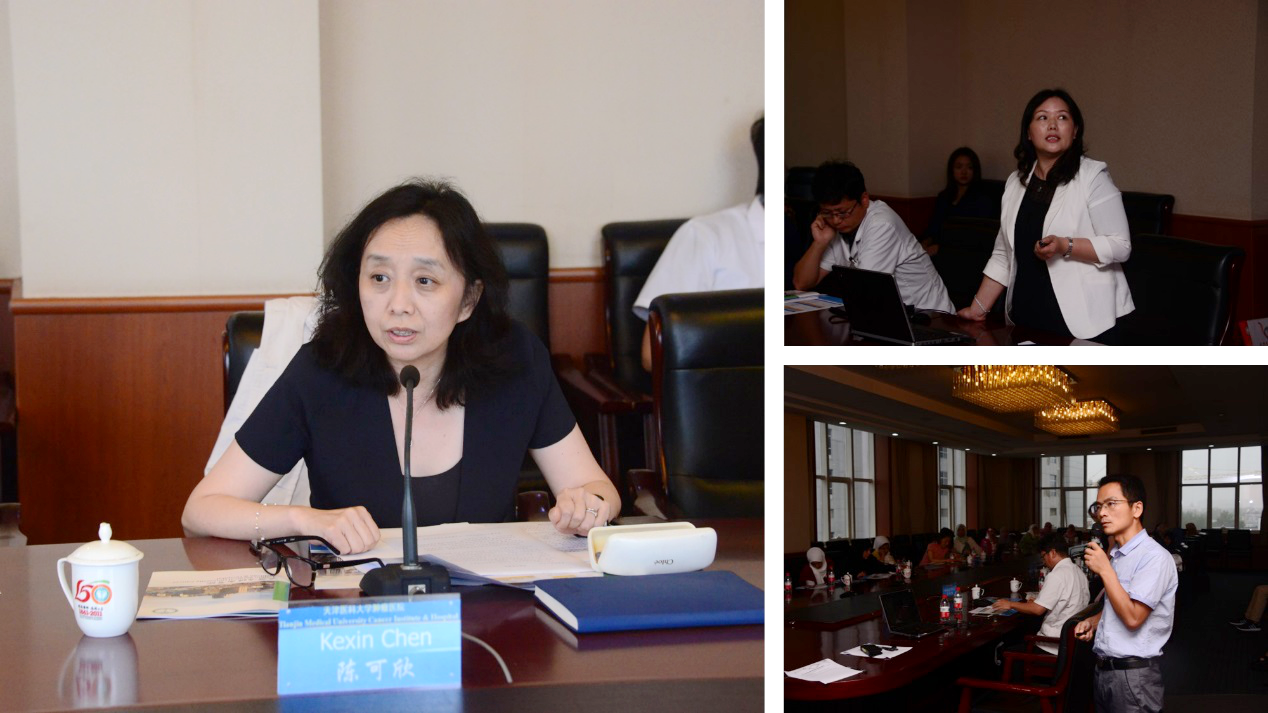
Director Liu Hong from TMUCIH gave a detailed introduction to the guidelines for clinical breast examination and she also introduced the differential diagnosis criteria for different breast cancer imaging examinations. Director Lang Ronggang systematically introduced the guidelines for breast pathological examination. Director Tong Zhongsheng gave a comprehensive introduction to the current diagnosis and treatment of early breast cancer at home and abroad. Finally, director Yin Jian systematically introduced the clinical technical requirements for breast reconstruction after breast cancer resection.
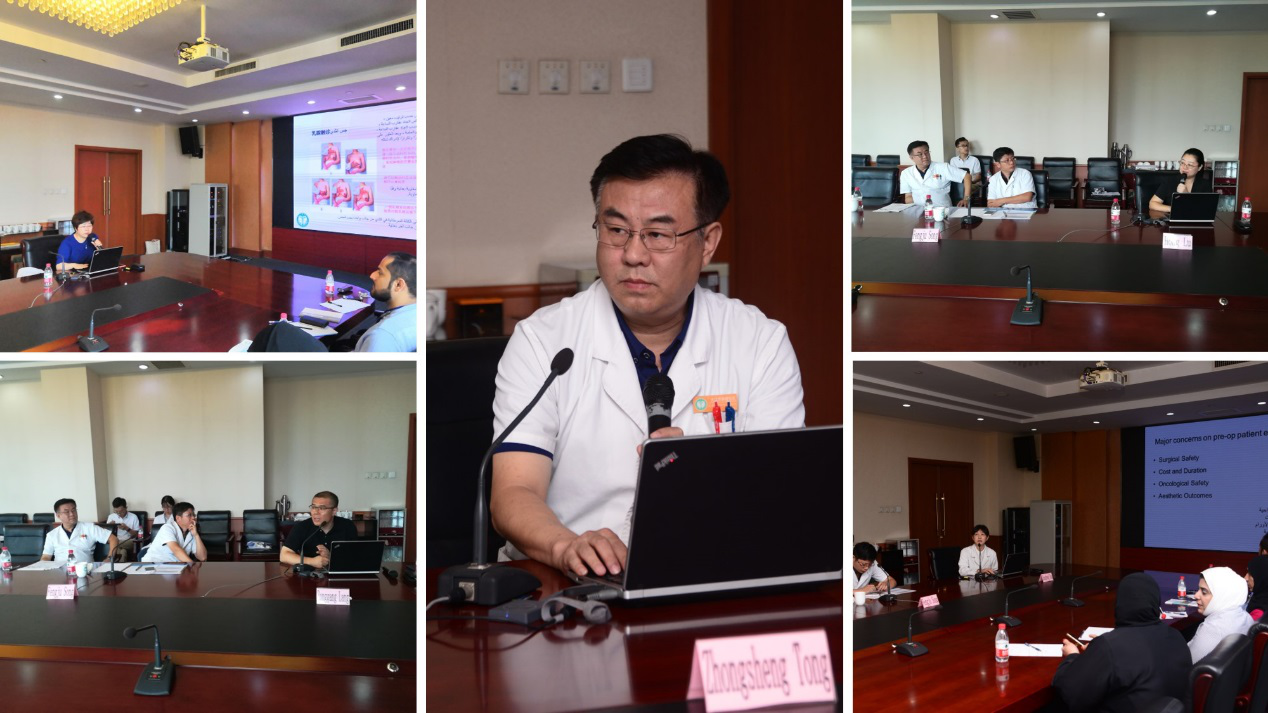
During the training process, these Omani primary health-care providers communicated and discussed several key issues about Chinese female breast cancer screening with relevant experts, such as how the genetic susceptibility locus found from breast cancer genome-wide association studies were used for screening, the age for commencing breast screening, the frequency of clinical breast examination in Chinese women and the differences between automatic whole breast ultrasound and second-eye ultrasound.

The Omani primary health-care providers also visited the Primary Health Care Centers in Chentangzhuang Community in Hexi District and Dawangzhuang Community in Hedong District in Tianjin. Here they had in-depth communicated and exchanged information with the presidents and other physicians of these two centers on how to conduct basic public-health and other programs on the prevention and control of chronic diseases, especially those for cancer screening programs in these community hospitals.
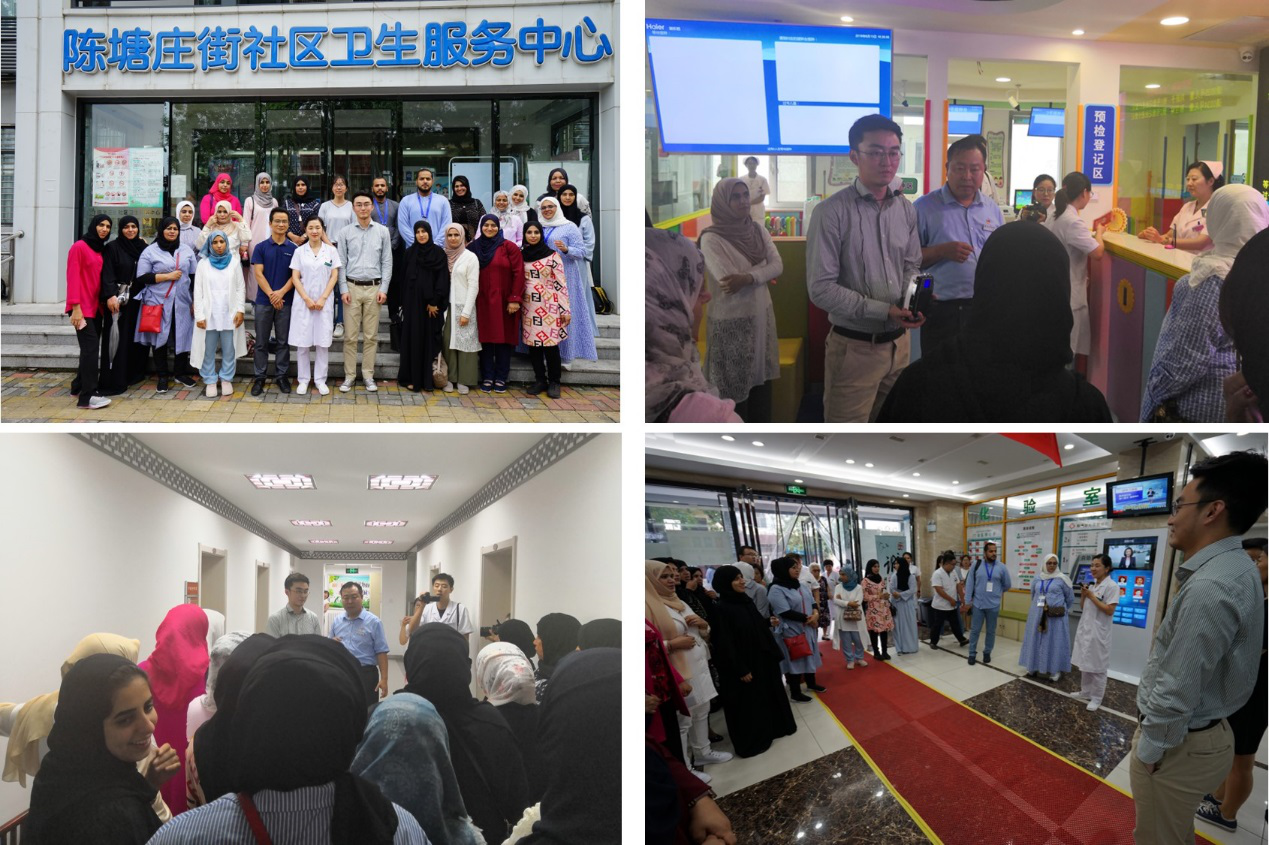
Throughout this training, all these Omani primary health-care providers generally expressed that they had acquired significant knowledge on breast cancer screening and gained valuable experience in Tianjin. They hope that they can return to China in the future to extend their knowledge about breast cancer screening and have more in-depth communication and cooperation with Tianjin Cancer Hospital.